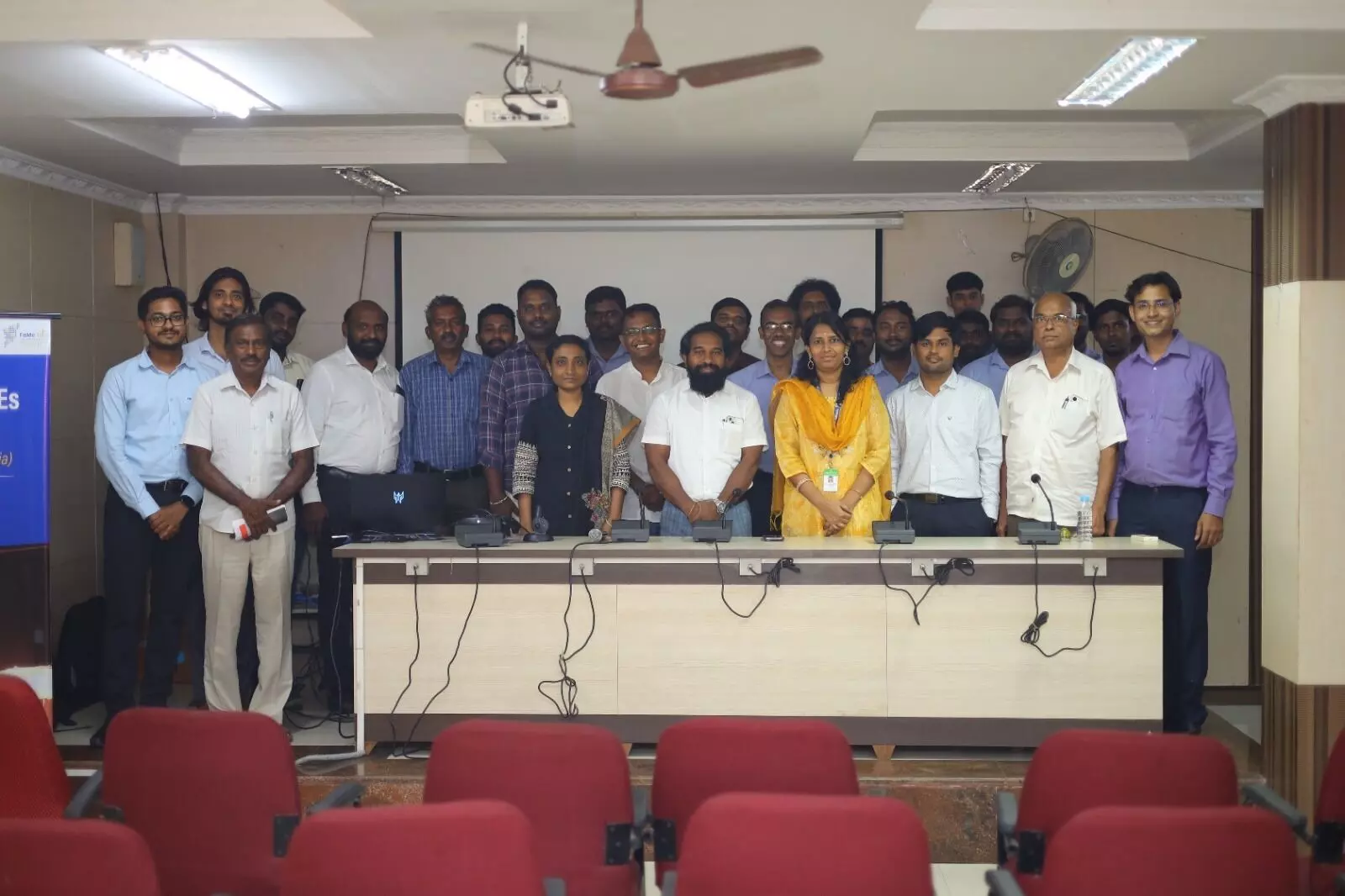Coimbatore automotive sector undertakes VR-based training to reduce emissions

Coimbatore, October 25, 2024: WRI India, in collaboration with Facilitating MSMEs in Tamil Nadu (FaMe TN) and the Coimbatore District Small Industries Association (CODISSIA), organised a first-of-its-kind Virtual Reality (VR)-based training on Friday. The workshop aimed at equipping auto component manufacturers (MSMEs) with the tools to adopt sustainable manufacturing practices.
As the global focus on artificial intelligence intensifies, experts also highlighted the need for India’s automotive sector to embrace efficiency measures to keep pace with the sector’s rapidly evolving technological landscape and effectively tackling greenhouse gas (GHG) emissions. VR enables users to experience life-like events through real-time simulations and multi-sensory interactions, making it easier to visualize complex models and significantly enhancing the effectiveness of training and education.
The initiative, which focused on energy efficiency training using VR software, has been specifically designed for MSME workers in Coimbatore. Using VR simulations, the program helps employees grasp technical concepts and implement energy-efficient practices within their units. The training also catered to the energy conservation needs of MSMEs, offering hands-on guidance for shop-floor workers to identify opportunities for saving energy in conventional industrial equipment. Participants gained practical skills that will enable them to reduce energy costs while addressing common industrial utility issues.
The event saw the participation of over 30 auto component manufacturers and around 100 MSME workers. Other partners in the event included Laghu Udyog Bharati, the Southern India Engineering Manufacturers' Association (SIEMA), the Coimbatore chapter of The Institute of Indian Foundrymen, and the Scientific Industrial Testing and Research Centre (Si’Tarc).
"Energy efficiency is crucial for MSMEs to reduce costs and boost sustainability," said Shantha Sheela, state business facilitation officer, FaMeTN. "MSMEs should conduct energy audits and upgrade their operations, with support from state schemes like the LTPT subsidy and PEACE Scheme. FaMeTN, in partnership with WRI India, is helping MSMEs in Coimbatore access training and state subsidies to promote energy-efficient practices."
"MSME energy use is often based on judgment rather than measurement, which increases costs," said K Mohan Senthil Kumar, President of Si’Tarc. "To stay competitive, it's crucial to reduce energy consumption. Workers need to understand energy use and contribute ideas for improvement, as they are directly involved in energy spending. Measuring efficiency is the first step, and after proper training, workers should take responsibility for conserving energy." He added that WRI India provides expertise, technology, and support through training, audits, and consultations to drive these improvements.
Hari Viswanathan, secretary of the Institute of Indian Foundrymen (IIF) Coimbatore Chapter, praised the initiative, saying, "Energy efficiency training is crucial for MSME foundry workers. Optimising energy use can reduce costs and environmental impact, enhancing competitiveness and sustainability. We're pleased to collaborate with WRI India in initiating this critical training for MSME foundrymen."
P. Ponram, Treasurer of CODISSIA, highlighted the importance of MSMEs in India's economy, contributing 29% to GDP and providing jobs for 110 million people. He emphasized the need for MSMEs to improve energy efficiency to support India's "Net Zero" goal for 2070. "The initiative aims to enhance energy efficiency and accelerate the adoption of sustainable practices in MSMEs through knowledge sharing, capacity building, and financial support," he said.
The event was a part of the Empower MSMEs Program, which was launched at Elektrotec 2024 (trade exhibition) on August 12. The Empower MSMEs program, a flagship initiative by WRI India, with FaMeTN, is designed to support MSMEs' low-carbon transition and resilience through a just and inclusive framework. This comprehensive approach is expected to accelerate the green transition of MSMEs, fostering greater sustainability within Coimbatore's automotive sector.
"MSMEs need to adopt sustainable manufacturing practices to meet supplier demands, such as the green procurement policies adopted by original equipment manufacturers (OEMs)," said Amitosh Gautam, senior programme manager at WRI India. "Reducing carbon emissions in MSME operations is crucial and will help lower energy costs, ultimately making them more competitive."
With the introduction of VR-based skill training, Coimbatore's automotive sector is set to not only keep up with global technological advancements but also significantly reduce its carbon footprint in the process.
Media Contact:
Piyush Tripathi; Mob- 82941 54887; e- mail: Piyush.tripathi@wri.org
Amitosh Gautam; Mob- 94088 76165; e- mail: Amitosh.Gautam@wri.org
About WRI India
WRI India, an independent charity legally registered as the India Resources Trust, provides objective information and practical proposals to foster environmentally sound and socially equitable development. Through research, analysis, and recommendations, WRI India puts ideas into action to build transformative solutions to protect the earth, promote livelihoods, and enhance human well-being.
Know more: https://wri-india.org/
